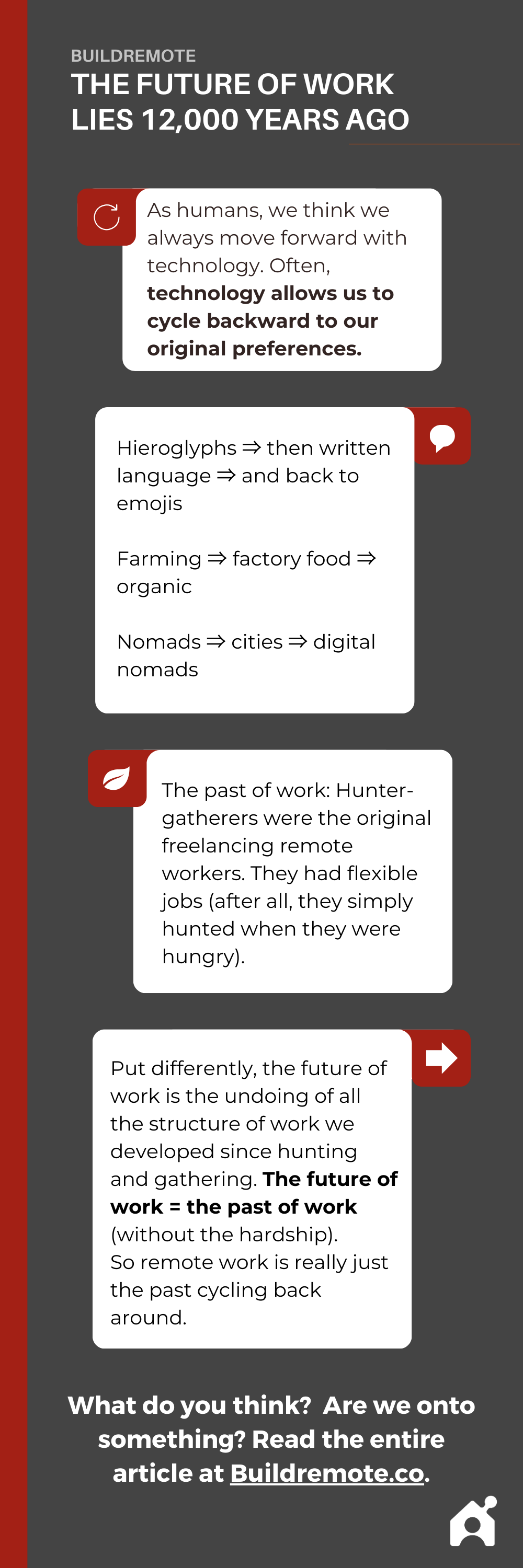The Future Of Work Lies 12,000 Years Ago
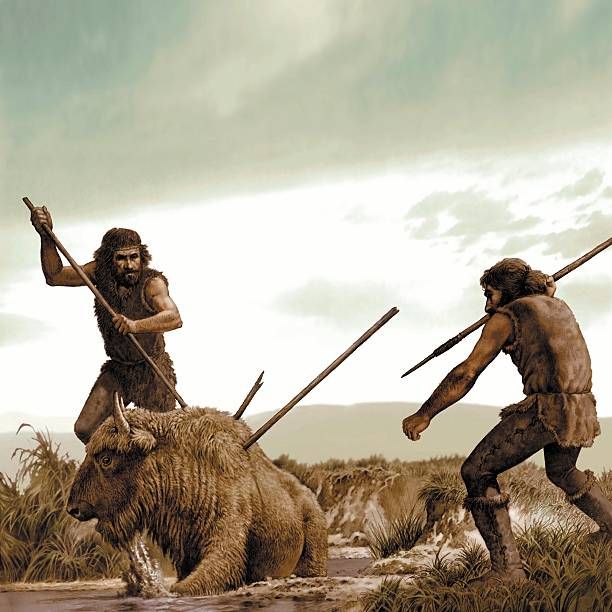
We think we always move forward with technology. Often, technology allows us to cycle backward to our original preferences.
Think about it:
- We had hieroglyphs ⇒ then written language ⇒ and we’re back to emojis. Aren’t emojis just digital hieroglyphs?
- Farming ⇒ factory food ⇒ organic
- Nomads ⇒ cities ⇒ digital nomads
Our technology moves forward to allow our preferences to revert.
With that in mind, picture your own “future of work.”
Will “Future You”…
- Work for yourself?
- No longer work in an office?
- Work when you need to but not more?
- Work mostly alone but with others when it’s beneficial?
- Have a side business you’re developing?
No more bosses. No more offices. No more 9-5 schedules. Fewer meetings. Your own income sources.
If that’s what your future of work looks like, it aligns with many of the future of work predictions we’ve all made.
Those predictions always come in buzzword form, though, so they’d look like this:
The future of work: Freelancing, remote work, flexible schedules, asynchronous communication, side hustles
Now, take another look at these guys at work.

Let’s say they lived at the end of the Paleolithic period which lasted from 2.5 million years ago to 10,000 B.C.
Now, line up your preferences for the future of work with how these hunter gathers worked 12,000 years ago:
- Work for yourself: Do you think these two have a boss?
- No longer work in an office: No office here.
- Work when you need to but not more: They made this kill at 10 AM. Think they’ll hang around until 5 PM to show their coworkers they care?
- Work mostly alone but with others when it’s beneficial: They hunt smaller animals alone, bigger ones together.
- Have a side business you’re developing: Picking berries is a nice side hustle to hunting.
The past of work: Hunter gatherers were freelancing remote workers with flexible schedules who worked asynchronously and always had a side hustle.
Before you X out of this article… I’m not saying we’re all about to move back into caves.
The future of work is exactly how we operated 12,000 years ago with all of the benefits and none of the drawbacks.
See Also: 54 Future Of Work Predictions For 2030
Put differently, the future of work is the undoing of all the tools of work we developed since hunting and gathering.
Nomadic hunting and gathering gave way to…
⇓
Farming for yourself (no longer nomadic but spread out)
⇓
Manufacturing for a corporation (no longer spread out)
⇓
Office work in cities (living and working close together)
⇓
Internet work from the office (ability to spread out, but not yet realized)
⇓
Future of work (self-employed digital nomads)
To go from hunter gatherers to the present day, we developed tools of work like corporations, bosses, salaries, the 9-5, offices, commuting, computers, and the internet.
Each one made it easier and more efficient for us to work together at that time.
Then the internet came along as the tool to undo all the former tools.
Work backward with me through the list of tools we’ve developed from “commuting” to “corporations.” For anyone in jobs that can deliver value over the internet, we know these things are already happening:
Commuting: 2020-2021 taught us these are no longer necessary.
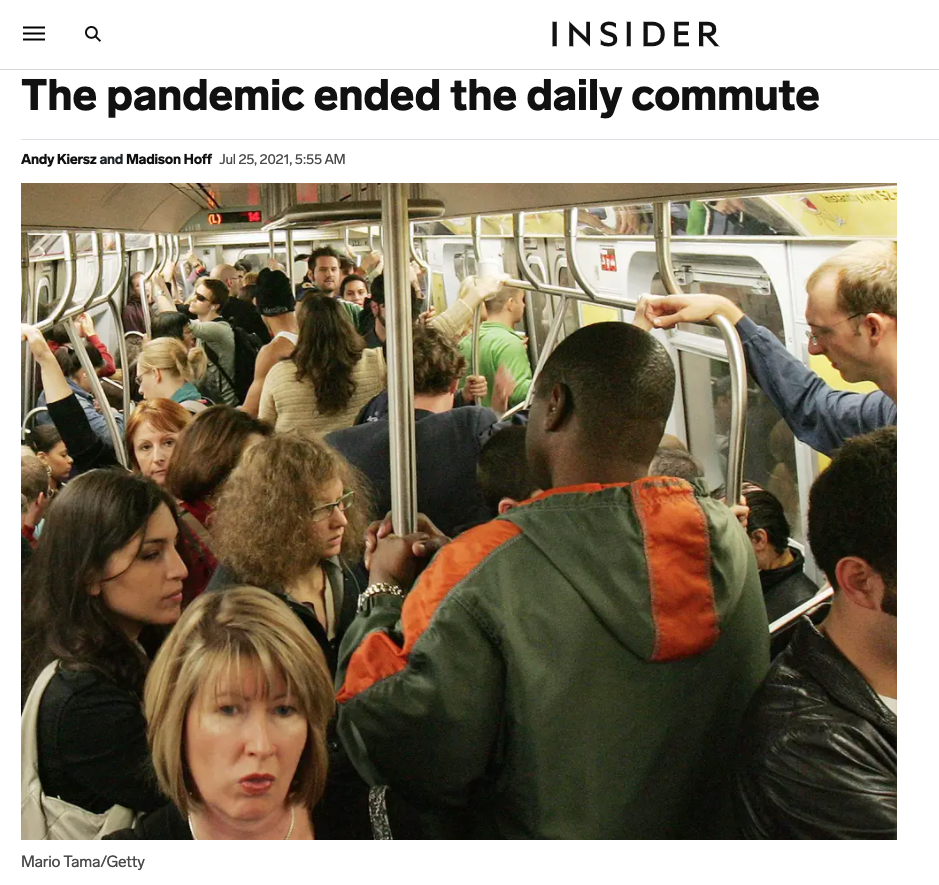
Offices: Occupancy rates are around 30% of what they were before 2020. The office is dead.
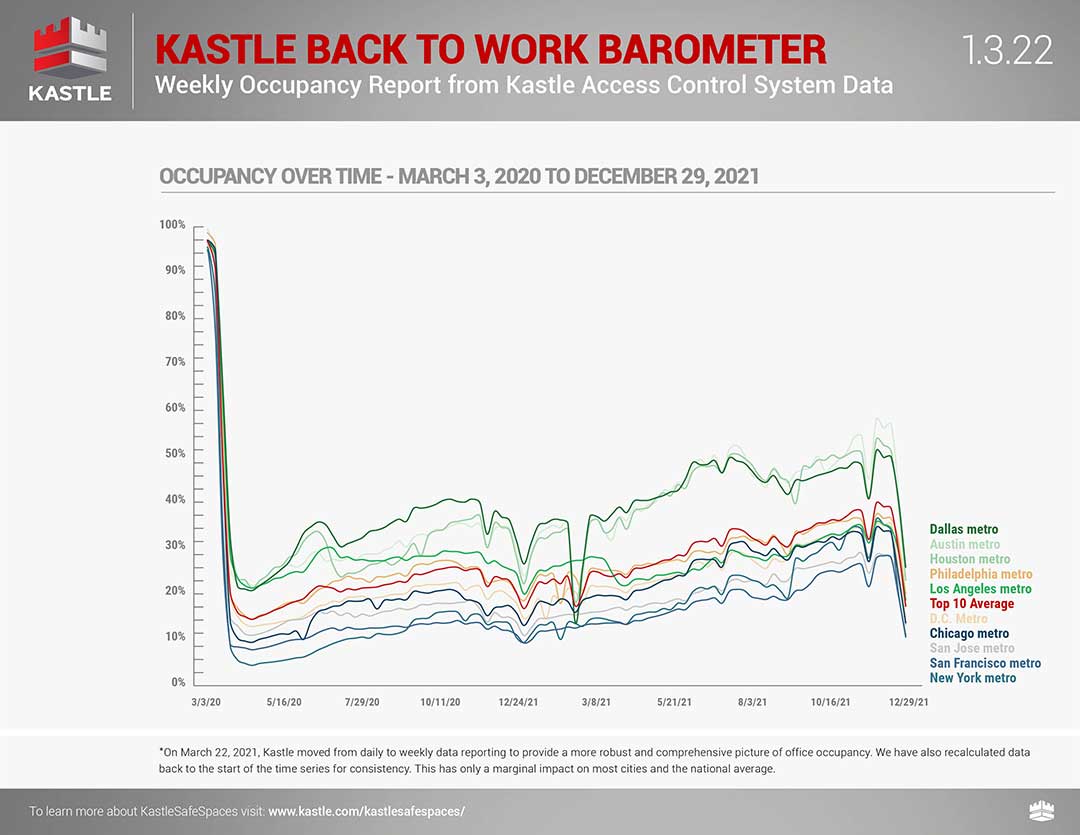
The 9-5: In a fully remote environment, shift work isn’t necessary. As more and more companies go to a four-day work week and async-first, the 9-5 structure falls.
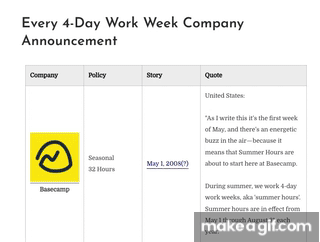
Salaries: Freelancers don’t have salaries, they have income. Soon, more than half of the American workforce will be freelancers.
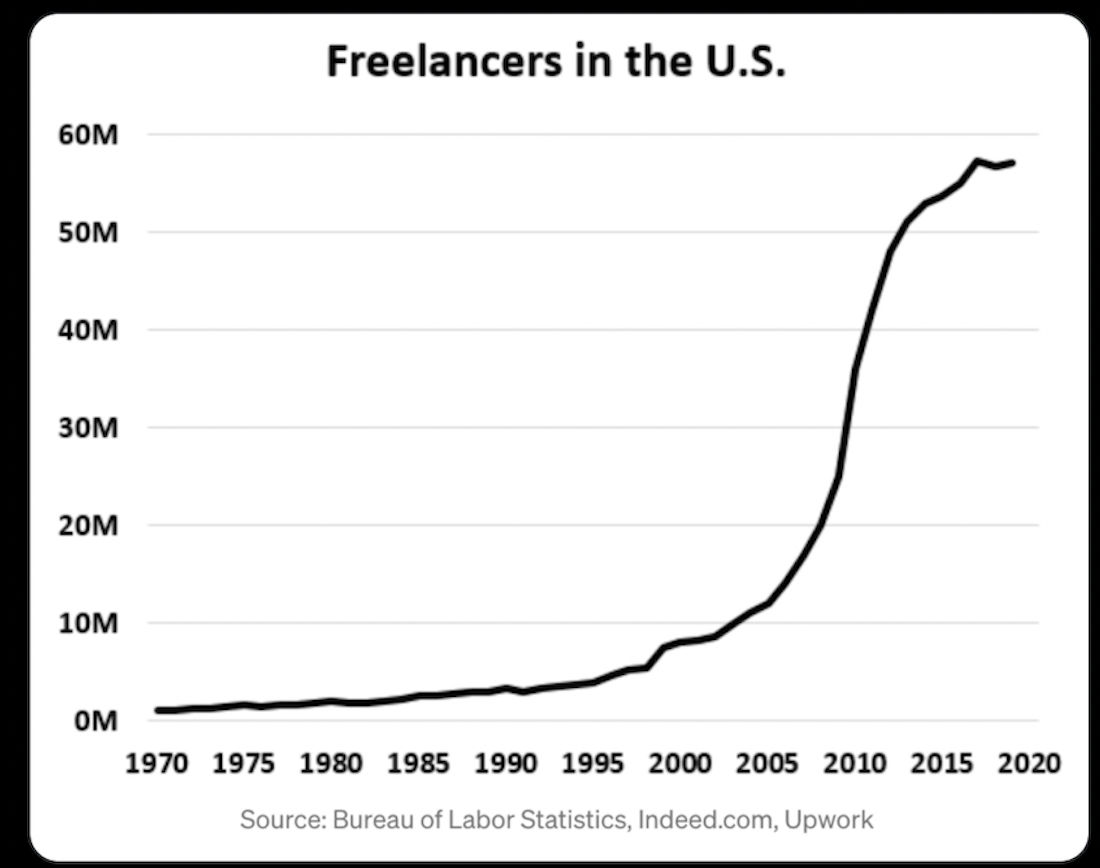
Bosses & Corporations: As more people work for themselves, fewer people work for a boss or a corporation. These fall last.
The future of work = the past of work (without the hardship)
In our earliest state, humans worked for themselves when they needed to but not more and wherever the opportunity was best. We were hunter gatherers.
As we developed, technological advances improved our quality of life. New ways to work together allowed us to diversify skills and tasks to improve efficiency.
But the advances came with tradeoffs.
- To farm, we could no longer travel.
- To produce, we needed to live only where the work was (near manufacturing plants).
- To collaborate, we needed less freedom and time (offices, commutes, and set schedules).
- To manage, we needed management and structure (bosses and corporations).
Each advancement in technology came with a new way of working that stripped out some of our earliest preferences: to work for ourselves, to work when we want but not when we’re told, to work alone when it’s best and together when that’s best.
The internet has allowed for us to remove all of the disadvantages from those advancements.
So what does the future of work look like?
It looks a lot like it did 12,000 years ago, but this time without the brutal downsides.
Want to contribute your ideas about where this whole “work thing” is headed?
We’d love to hear from you:
- Become a Buildremote expert contributor: We send 1 email/month with opportunities to get quoted on our site. We get to feature your good ideas, you get a link and exposure.
- Submit a guest post
Did you enjoy this article? Hover over the image below to pin it!
